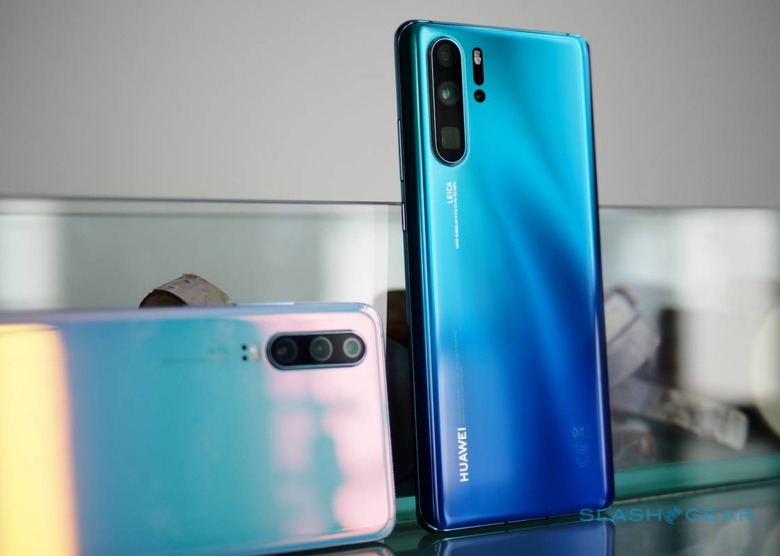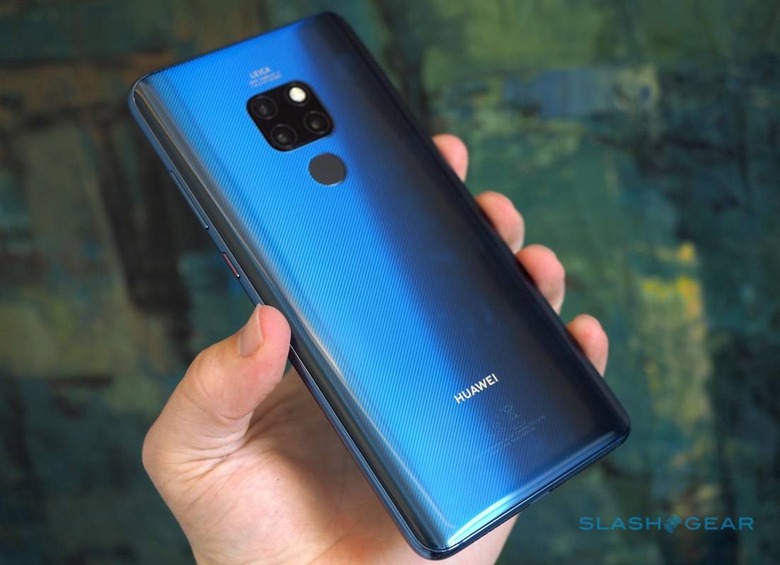The reality of Trump's Huawei ban keeps unfolding
The reality of Huawei's uphill struggle is becoming clear, the implications of the US ban on American companies working with the Chinese telecoms firm exposing its dependence on the West – even as President Trump undermines his own argument for it. What began with Huawei being blocked from using key Android apps, services, and technologies has snowballed into a potentially business-shattering firewall that leaves the Chinese company out in the cold.
First, it was Google and Android. Then came the chip companies, and most recently Huawei was stripped of its membership in the association that controls SD memory cards.
Despite protestations that the situation wasn't as bad as portrayed, Huawei's position is looking increasingly shaky. Already, carriers have moved to hold the phone-maker at arm's length. Citing concerns around the long-term stability and security of its devices, two UK carriers announced earlier this week that they would no longer be including Huawei's 5G phones in their roll-out of next-generation networks.
It's a stark reminder that it's not only software which could prove to be Huawei's undoing. Losing access to the full version of Android that many are familiar with – including Google's own custom apps for Gmail, YouTube, and the Google Play store, among others – could, theoretically, be dealt with. Huawei could, after all, release a new OS based on AOSP, the open-source version of Android, and then work on engaging with developers to fill an app store of its own creation.

That's not going to fly, however, if it can't use hardware technologies inherent to modern phones. Chipsets are the obvious example, with Arm, Qualcomm, and others all forced by the US blockade to cease business with Huawei. However the Chinese firm's reliance on technologies controlled by US organizations like the WiFi Alliance, Bluetooth SIG, SD Association, and others underscores quite how much global content goes into even heavily localized devices.
Without Bluetooth, WiFi, and other technologies, even if Huawei had an OS of its own to use, it would still end up with a phone that would be a tough sell to modern audiences.
Meanwhile, the truth of exactly why Huawei is being targeted keeps on shifting. Talking to reporters earlier this week, US President Trump described the Chinese firm as "very dangerous" when it comes to security. That fits with previous comments from the US government that Huawei is a security risk, with accusations that it allows the Chinese government backdoor access into Western systems.
Shortly after branding Huawei as dangerous, however, Trump suggested that the company's current problems could be alleviated, were China to buckle in ongoing trade negotiations. "It's possible that Huawei even would be included in some kind of trade deal," the president suggested, CNN reports. "If we made a deal, I can imagine Huawei being included in some form of, some part of a trade deal."
Trump's suggestion is likely to only encourage China's protestations that the Huawei ban is motivated by politics, not security. Chinese government officials have accused the US of "long-arm jurisdiction," attempting to sabotage foreign companies for its own gain.

China's increasing potential to prevent the US from taking the lead in 5G has been a growing concern for some. Back in April 2019, a US Department of Defense paper argued that the country was in a war with China over 5G development, and that unless strategic changes were implemented, it would be a war that America would lose. Among the fears was the idea that by de-facto forcing US carriers to adopt mmWave for part of their 5G deployment – because bands other countries have used for 5G are already set aside for government purposes – it could effectively silo America on the outside of dominant global standards.
It's a situation with plenty of competing paranoia, business rivalry, and patriotic bullheadedness. That has added up to uncertainty for Huawei customers, reluctant compliance by US companies and organizations who find themselves forced to cut ties to one of the biggest phone-makers in the world, and still no concrete example of the security concerns some officials still insist are the primary motivation of the ban.
Meanwhile, China's potential for retaliation remains ominously unclear. Given the wealth of manufacturing that happens in the country for Western companies like Apple and others, the possibility that pressure from the Chinese government could drive up prices or even form a production bottleneck is a legitimate concern. For now, that's a bomb that China seems reluctant to drop, but whether it will continue to hold off as Trump doubles-down on his accusations in the hope of securing a better tariff deal seems unlikely.
